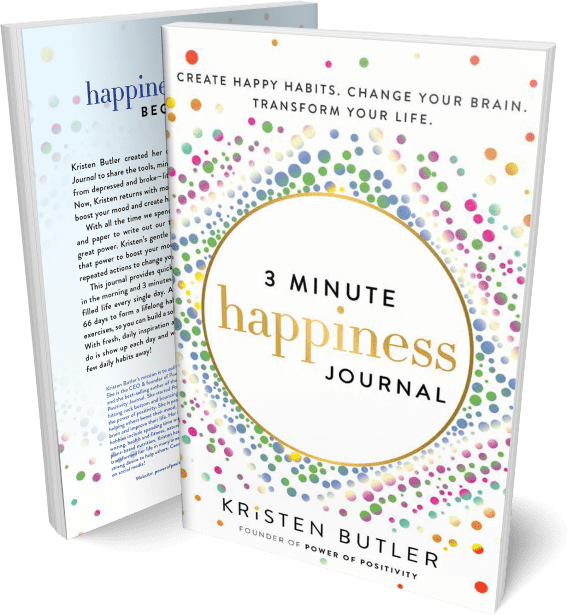Embarking on the path of self-improvement, one discovers many tools and strategies. Among these, the happiness journal shines brightly. This simple yet comforting practice holds the potential to be a transformative force, guiding individuals gently toward a more profound sense of self-compassion and self-love.
This article can serve as a compass, offering direction as one navigates starting and maintaining a happiness journal. Recognizing that each person’s journey is unique, it offers not rigid rules, but flexible suggestions, designed to help each find their rhythm and style in journaling.
The happiness journal is a safe space, a sanctuary for thoughts and feelings. It’s a place where authenticity is celebrated, free from judgment or criticism. It’s a place where joys can be celebrated, struggles acknowledged, and the journey embraced with kindness and compassion.
How to Start a Happiness Journal
Step 1: Choose Your Happiness Journal
The initial step in your happiness journaling journey is to select a journal that genuinely speaks to you. This choice is deeply personal and should align with your preferences and lifestyle. The medium you choose can significantly influence your commitment to the practice. So it’s crucial to select one that you feel comfortable with and one which brings you joy.
Power of Positivity founder Kristen Butler’s 3 Minute Happiness Journal is perfect for those seeking a guided approach to happiness journaling. This journal makes journaling quick, easy, and enjoyable. It provides thoughtfully crafted prompts that guide you to focus on positive experiences and express gratitude, fostering happiness and self-love.
This journal is far more than just a notebook—it’s a tool for transformation. Its structure encourages daily reflection, yet it takes only a few minutes to complete, making it a perfect fit for busy lifestyles. The journal’s design is inviting and uplifting, making each journaling session a joyous experience.
Butler’s journal is also highly versatile. Whether you’re a beginner just starting your journaling journey or a seasoned journaler seeking a refreshing change, this journal is designed to meet you where you are.
Remember, the key is to choose a journal that resonates with you, one that you’ll look forward to using each day. Your happiness journal is a tool for self-improvement, and it should inspire and motivate you on your journey toward self-compassion and self-love.
Step 2: Create a Routine
Establishing a consistent routine is a cornerstone of successful journaling. Writing in your journal should become a habitual part of your day, like brushing your teeth or having morning coffee. Integrating journaling into your daily routine makes you more likely to stick with it and reap its many benefits.
Choose a time of day that suits your lifestyle and mood. Journaling first thing in the morning helps set a positive tone for the day. It can be a time to set intentions, express gratitude, and mentally prepare for the day.
Others may prefer to journal at night to reflect on the day’s events and unwind before bed. This can be a therapeutic process, allowing you to release stress or negative emotions from the day and focus on the positive.
This routine becomes even more manageable as you progress. The journal is designed to be quick and easy to use, making it a seamless addition to your daily routine.
Step 3: Write Freely in Your Happiness Journal
One of the beautiful aspects of happiness journaling is its inherent freedom. You have no strict rules or guidelines to follow. Instead, you’re encouraged to write freely about your thoughts, feelings, and experiences.
You can write about the events of your day, your hopes and dreams for the future, or any fears or worries you may have. You can jot down inspiring quotes or doodle sketches that express your mood. The goal is to express yourself honestly and openly, creating a record of your journey.
Your happiness journal is your canvas, and you are the artist.
Step 4: Practice Self-Compassion and Self-Love
At the heart of journaling is the practice of self-compassion and self-love. As you write in your journal, remember to treat yourself with the same kindness and understanding you would offer to a dear friend.
Celebrate your achievements, no matter how small they may seem. Did you make someone smile today? Write it down. Did you finish a task you’ve been putting off? Pat yourself on the back in your journal. These small victories are essential steps on your journey to self-improvement.
Similarly, forgive yourself for your mistakes. Recognize that everyone stumbles and that these moments are growth opportunities. Write about these experiences in your journal, not as failures but lessons learned.
So foster self-compassion and self-love as you write. You are a perfectly imperfect person, and that’s a beautiful thing.
Absolutely, a reflection step would be a valuable addition to this guide. Reflecting on your entries over time can provide insightful perspectives on your personal growth and changes in your thought patterns. Here’s how it could look:
Step 5: Reflect on Your Journey
Reflection is a powerful tool in your happiness journaling practice. Over time, your journal will become a rich tapestry of your thoughts, feelings, and experiences. Regularly taking the time to reflect on your past entries can provide valuable insights into your personal growth and evolving perspectives.
You may notice patterns or recurring themes as you read through your past entries. Perhaps you’ll see how a particular worry has lessened over time, or how your appreciation for small daily joys has grown. These insights can be incredibly empowering, highlighting your resilience and capacity for change.
Reflection also provides an opportunity to celebrate your progress. Seeing your growth and transformation in writing can be a potent motivator, encouraging you to continue your journaling practice and your journey toward self-compassion and self-love.

10 Benefits of Fostering Positive Thinking With a Happiness Journal
Keeping a happiness journal offers a myriad of benefits. Here are ten of the most significant reasons to try.
1. Enhances Self-Awareness
Maintaining a happiness journal can significantly enhance self-awareness, a critical aspect of emotional intelligence and personal growth. You create a tangible record of your internal landscape as you pen your thoughts, feelings, and experiences. This process encourages introspection and helps you better to understand your emotions, behaviors, and motivations.
The American Psychological Association states that heightened self-awareness can lead to personal growth. Thus, it leads to improved decision-making. By understanding your emotional responses and identifying recurring patterns in your behavior, you can make more informed decisions and take actions that reflect your values and goals. Journal prompts can facilitate this self-awareness, guiding you to reflect on your experiences and emotions and fostering a deeper understanding of yourself.
2. A Happiness Journal May Reduce Stress
Journaling serves as an effective stress management tool. Writing about your experiences and emotions provides an outlet for expressing and releasing pent-up feelings. This process can be therapeutic, helping to reduce stress and anxiety levels.
When you write about stressful events or worries, you transfer them from your mind to the page. This can provide relief and reduce the intensity of these feelings. Furthermore, writing about your concerns can help you view them differently. As a result, it may lead to solutions you hadn’t previously considered. The structure of a well-designed journal encourages you to express your feelings freely, helping to reduce stress and promote emotional well-being.
3. Boosts Mood
Regularly focusing on positive experiences and expressing gratitude in your journal can profoundly impact your mood and overall happiness. This practice shifts your focus from what’s wrong in your life to what’s going well, fostering a more positive mindset.
Much research agrees that gratitude can increase happiness levels and reduce depressive symptoms. By writing about things you’re grateful for in your journal, you’re training your brain to notice and appreciate the abundant blessings of your life. Journal prompts that guide you to focus on the good in your life can boost your mood and foster a greater sense of happiness.
4. A Happiness Journal Improves Memory
Journaling can serve as a powerful tool to enhance memory recall. When you write down your experiences, you engage in a cognitive exercise that involves various parts of the brain dictating memory and learning. This process can strengthen neural pathways, enhancing your ability to remember and recall information.
Moreover, journaling allows you to record moments, thoughts, and feelings you may want to revisit. By documenting these experiences, you create a personal archive that you can look back on, helping to reinforce and recall these memories over time.
5. Fosters Resilience
Resilience, or the innate ability to bounce back from adversity, is critical to emotional well-being. Journaling can play a significant role in fostering resilience. When you write about challenges you’ve faced and how you’ve overcome them, you create a narrative of resilience.
This practice can help you recognize your strength and adaptability, enhancing your confidence in coping with future difficulties. Over time, this practice can reinforce a positive self-image as a resilient individual, which can be particularly beneficial during stress or adversity.
6. Promotes Mindfulness
Mindfulness, the practice of being fully present and engaged in the current moment, is another benefit of journaling. Writing in a happiness journal encourages you to slow down, focus on the present moment, and engage deeply with your thoughts and feelings.
This process of mindful writing can help you become more attuned to your internal experiences and the world around you. It can foster calm and focused awareness, associated with numerous psychological benefits, including reduced stress, improved mood, and enhanced cognitive performance.
7. Encourages Self-Compassion
Self-compassion involves treating the self with kindness and understanding, particularly during struggle or failure. Journaling can be a powerful tool to promote self-compassion.
When you write about your experiences and emotions with kindness and understanding, you cultivate a compassionate attitude toward yourself. You learn to view your mistakes, not as failures. Instead, you will soon see them as opportunities for learning and growth. This practice can lead to greater emotional well-being, fostering resilience in adversity and promoting an optimistic and forgiving self-view.
8. A Happiness Journal Facilitates Personal Growth
Journaling is a powerful facilitator of personal growth. You create a chronological record of your journey as you consistently record your thoughts, feelings, and experiences. Over time, this record can reveal patterns, highlight growth, and provide insights into your evolving self.
Seeing your progress in writing can be incredibly motivating. It’s a tangible reminder of how far you’ve come, the challenges you’ve overcome, and the personal victories you’ve achieved. This can inspire continued self-improvement and reinforce your commitment to personal growth.
9. Enhances Communication Skills
Regular writing can significantly enhance your communication skills. As you articulate your thoughts and feelings in your journal, you practice expressing yourself clearly and effectively. This can improve your ability to convey your thoughts and emotions to others, benefiting your interpersonal relationships.
Moreover, journaling can help you better understand and manage your emotions, a crucial aspect of effective communication. You can communicate more empathetically and effectively with others by recognizing and articulating your emotions.
10. Provides a Source of Inspiration
Your happiness journal can serve as a rich source of inspiration. As you reflect on past entries, you’re reminded of happy times, personal victories, and lessons learned. These reflections can inspire you to continue your journey toward self-improvement and happiness.
Past entries can also remind you of your resilience and adaptability in facing challenges. They can inspire hope and confidence in your ability to navigate future difficulties. In this way, your happiness journal becomes more than just a record of your past—it becomes a source of inspiration and motivation for your future.

Final Thoughts: There’s No Time Like the Present to Start a Happiness Journal
Keeping a happiness journal is a beacon of hope in the quest for self-improvement. This seemingly simple act of recording one’s thoughts, feelings, and experiences is, in reality, a potent tool that can catalyze profound transformation.
A happiness journal fosters self-awareness, allowing you to understand your emotions, behaviors, and motivations deeply. It serves as a mirror, reflecting your inner world and enabling you to see yourself more clearly.
Moreover, it cultivates self-compassion and self-love. By writing in your happiness journal, you learn to treat yourself with the kindness you would offer a dear friend. You learn to celebrate your victories, however small, and to view your mistakes not as failures but as opportunities for growth and learning.
The benefits of keeping a happiness journal extend beyond the personal realm. According to numerous psychological studies, regular journaling can enhance memory, boost mood, reduce stress, and even improve physical health. It’s a practice that nourishes the mind, body, and spirit.
With Kristen Butler’s 3 Minute Happiness Journal, starting this transformative practice has never been easier. The journal’s thoughtful design and uplifting prompts make it a joy to use, and its compact format ensures that even the busiest individuals can find time for daily journaling.
So, why wait?
There’s no time to embark on your happiness journal writing journey like the present. Each day offers a new opportunity for self-discovery, self-improvement, and self-love. By starting your happiness journal today, you’re taking a decisive step towards a happier, healthier, and more fulfilling life.
The post Science Explains Why a Happiness Journal is Important for Mental Health appeared first on Power of Positivity: Positive Thinking & Attitude.






